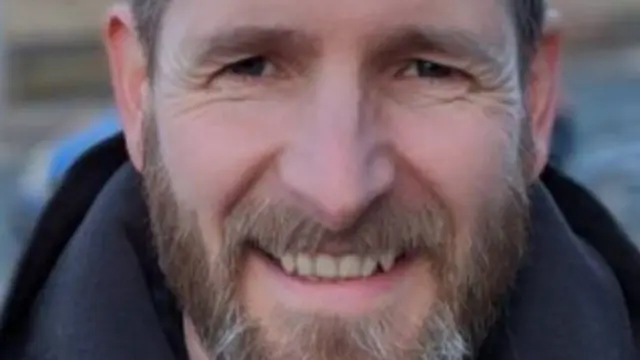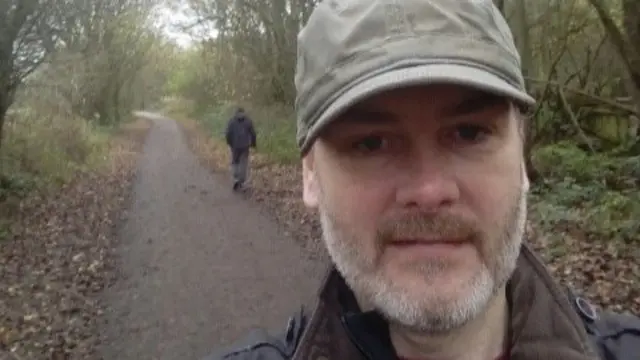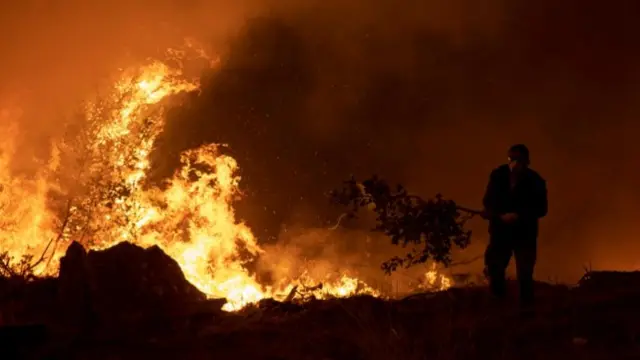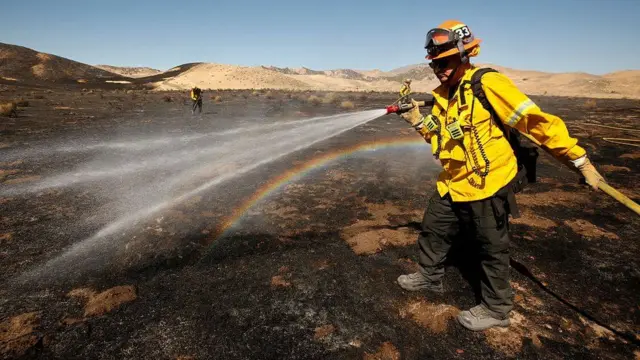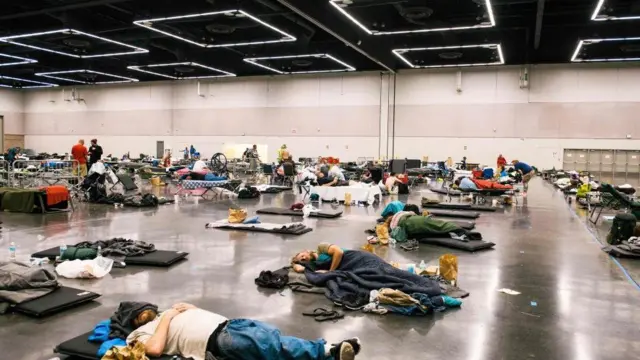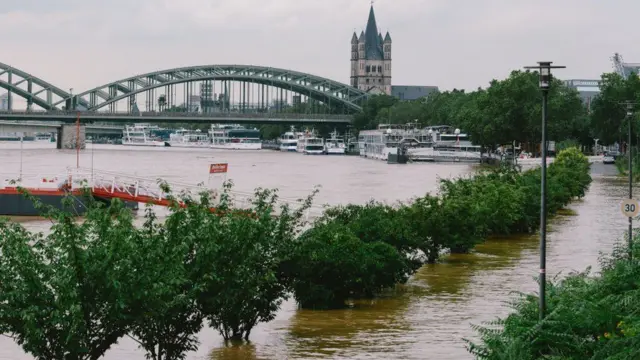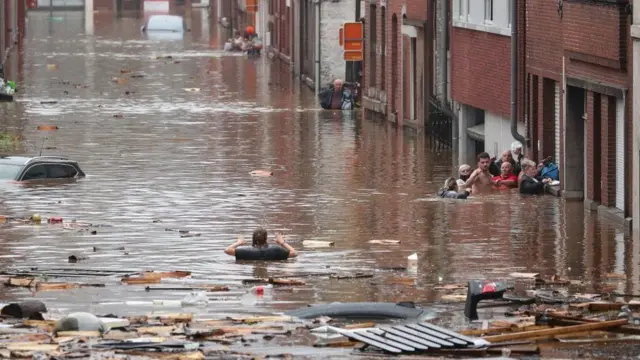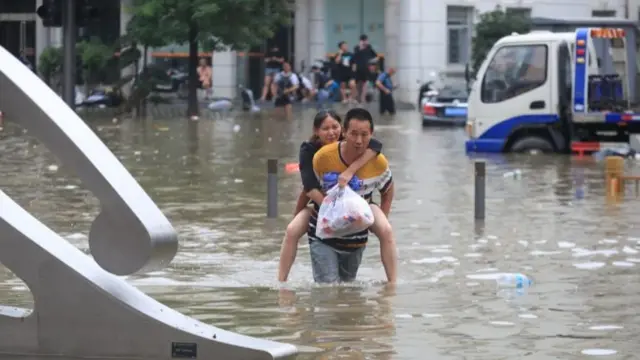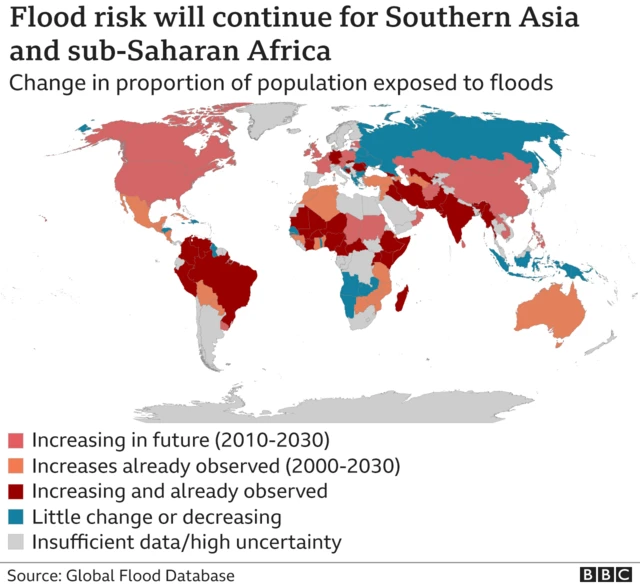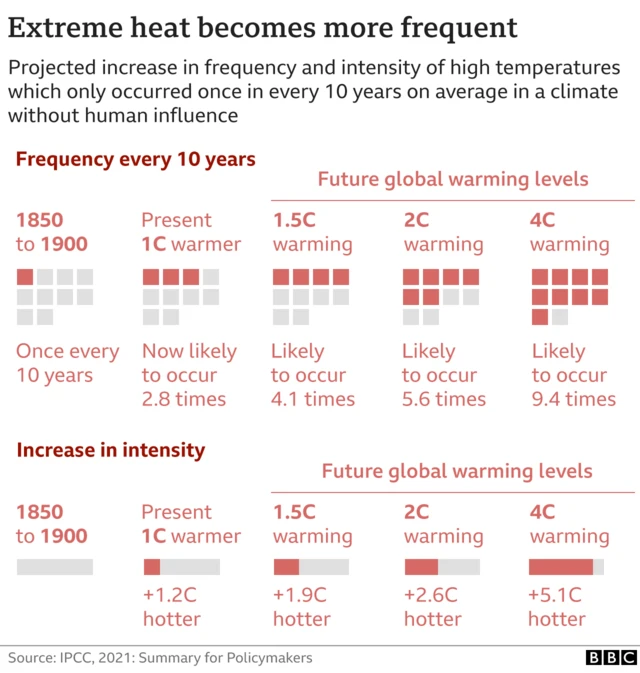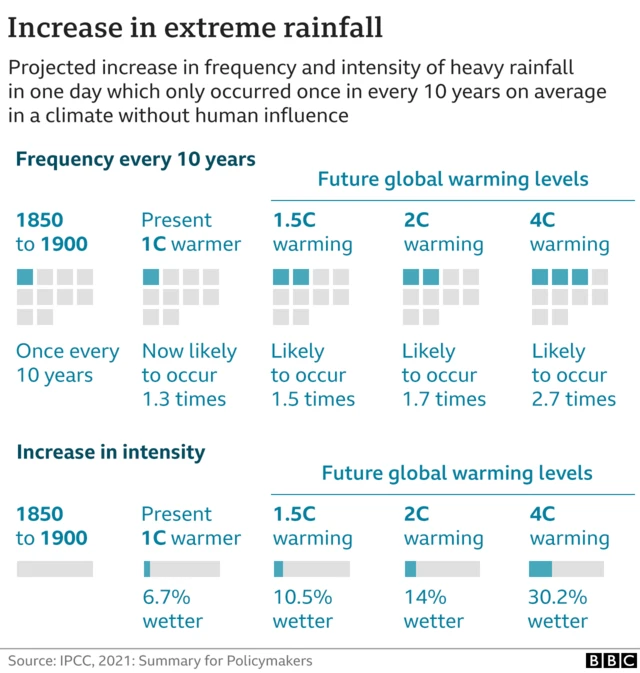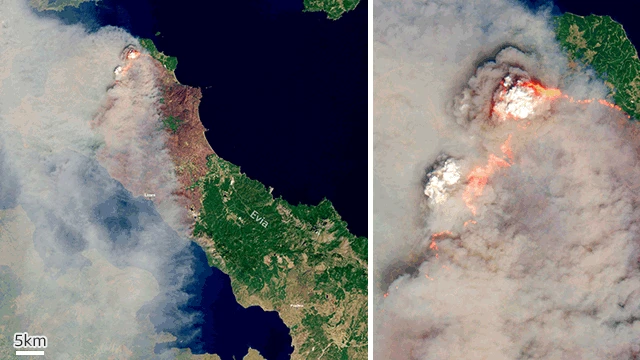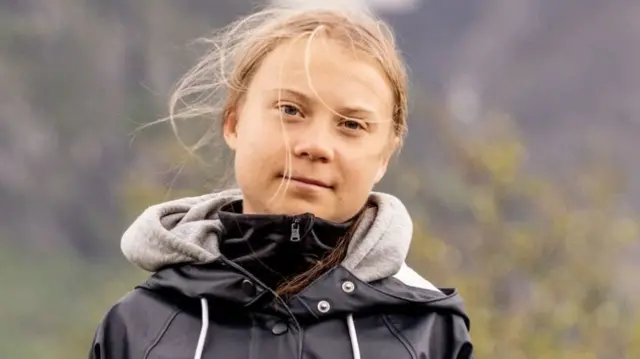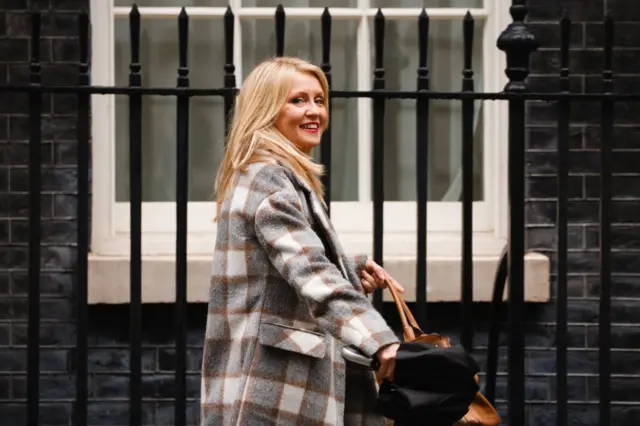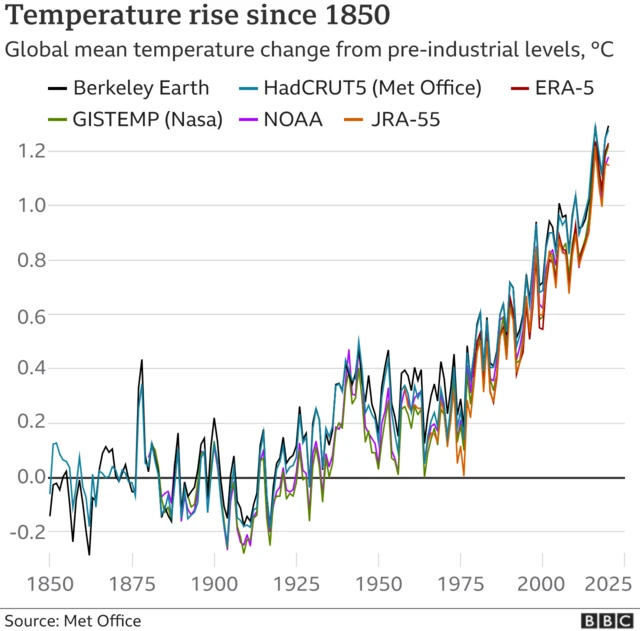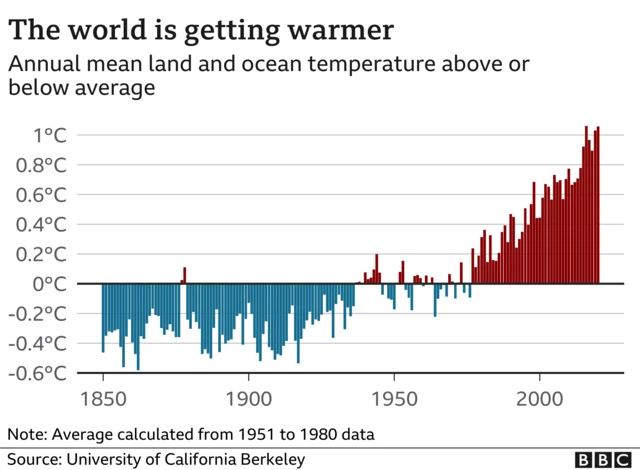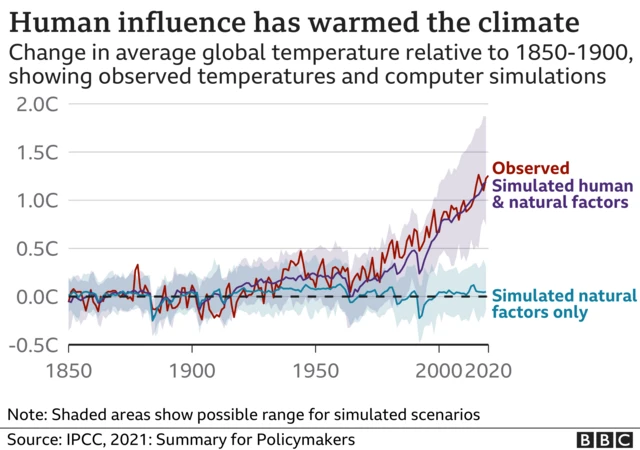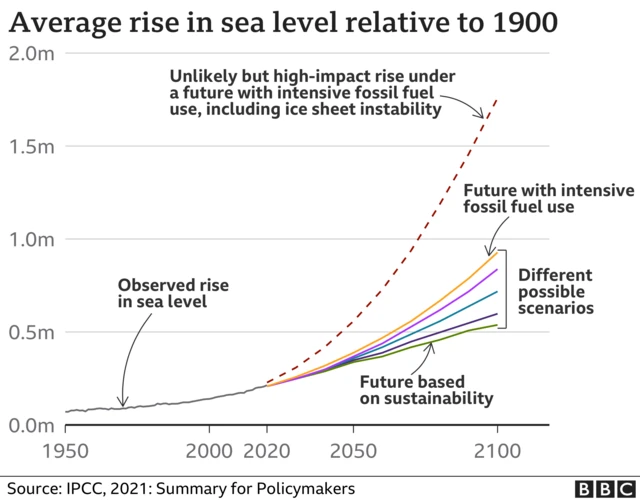Report's main points - and that's it from uspublished at 15:49 BST 9 August 2021
We're ending our live updates following the release of the landmark UN report on climate change. Thank you for joining us.
Here are the key points:
- Human activity is "unequivocally" to blame for global warming and some changes, such as sea-level rises, are irreversible
- Human influence is "very likely" the main driver of the global retreat of glaciers since the 1990s and the decrease in Arctic sea-ice
- It is "virtually certain" that hot extremes including heatwaves have become more frequent and more intense since the 1950s, while cold events have become less frequent and less severe
- The past five years have been the hottest on record since 1850
- There is still an opportunity to prevent even more severe impacts, by cutting emissions of carbon dioxide and other greenhouse gases
You can find out more about the report here.
Today's updates were brought to you by Ashitha Nagesh, David Walker and Toby Luckhurst. The editors were Hugo Bachega and Robert Greenall.

